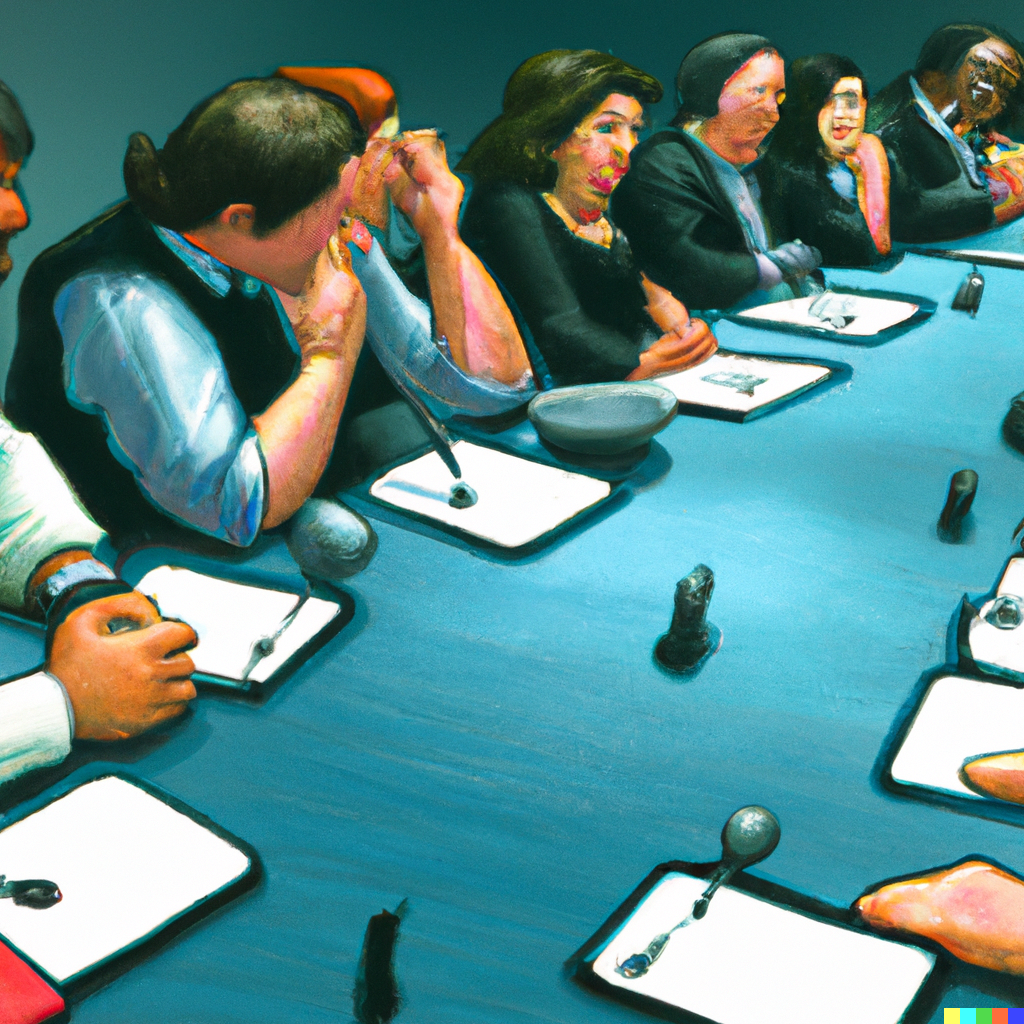Everybody experienced 2025 differently. Here’s how it felt to me. Comedy The core engine of comedy starts with a character. They have a flaw which inhibits the them from achieving a goal. The flaw is obvious to the audience. The character is oblivious to it. The more the character wants the goal, the greater their agony. The greater their agony, the greater the comedic effect. The whole idea that they don’t know any better drives the struggle and the delight in watching the struggle. All the classic archetypes of comedy precipitate out of this solution. I love comedy for its truth. And I love that sometimes…the character wins! In W1A, Ian wants to talk about Valuing Values. However he’s been[…]
Category: Data Driven Culture
There’s a peculiar expectation that the statements made by people ought to be consistent both in the moment and throughout all time. After all, how can you be for Y when you previously said Z? In this post, I’ll use networks to explain why consistency in belief is extraordinarily unlikely. Suppose a set of strings that represent a belief. For example: “People, when free, are generally good.” “Some people seek power over other people.” “A productive conflict is an exchange of beliefs.” Let’s set the internal consistency of each string aside. The string contains symbolic representation that is unto itself contestable. “This string is false.” Stare too hard at that sentence, with too much energy, and a black hole will[…]
Commissives, vows and pledges, are a peculiar class of rhetorical tool. I’ll argue that their predictive value vary by culture. Commissives as a cultural product I credit Liubertė and Dimov (2021) for telling me what a commissive is, and Trott (2013) for explaining just how important they are in American culture. A commissive is a vow, pledge, or a promise. I use the com- prefix to remember it. The com- prefix signals ideas like come together, commingle, community, or commitment. Trott highlights the difference between British culture, in which its fashionable to not commit, and American, where it’s expected. In America, you have to be all in. You have got to be stoked. To borrow from Komori (2015): it’s to[…]
Two cluster of events in 2024, so far, have changed my mind about the nature of the entrepreneurial firm: The post I shared in March, 2024 titled Honesty, Error, Deception, Fraud was a direct response a part of what I experienced in January. It represented the most coherent summary of what I thought I saw and heard. The post in May, Non-fictional intent in fictional contexts was a follow-on about belief, make-believe, deception, and self-deception. July’s post on The nature of secrets – a secret having a component of deception and often a non-fictional intent was in part a response to re-reading prior material with new eyes. The nature of belief, self-belief, self-object-belief, deception, self-deception, make-belief, belief-speaking, delusion, performance, performance[…]
This post offers some value in exchange for your attention. I’ll open up with an observation about attention payments and platforms. I’ll expand on the relationship between platforms, the state, and citizens. I’ll dive into recent changes in attention markets, talk about motives, expand on how I’m thinking about choices, and conclude with a practical rule of thumb that could be useful. Oh you’ll pay. You’ll all pay. You pay attention. You pay for attention with your time. Sometimes you’ll pay money and then pay attention — like when you go to the movies or the theatre. If you run a business, you may even pay for the attention of others in cold hard money to an attention distributer who[…]
The activity of perspective coordination is unreasonably effective at producing fantastic outcomes. In addition to creating legitimacy, it can offer a wider array of choices from which to select. The more diverse and courageous the set of people engaged, the wider array of choices. There’s a processing cost though. So, I’d like to believe that recent advancements in the processing power underlining artificial decision making can assist in helping people coordinate their perspectives faster and more completely. There’s a kind of brutal paradox embedded in all of this. It’ll take a bit of unpacking. Back in 2020, in The Humanity of Productive Meetings, I used an objective-based segmentation to explain the frustration each felt when experiencing ORID facilitation. Briefly: some[…]
How often are you asked to suspend disbelief as the price of admission? When should you? There are quite a few such contexts. Satire is my favourite. Plays are a close second. When you attend a play, you suspend disbelief for awhile. You know that the actors up on stage are engaging in a deception. They’re acting like something they’re not. And, for the enjoyment of all those around you, you keep your mouth shut about what’s happening up on stage. It isn’t a dialogue. It’s a one way broadcast. The same goes for sports entertainment: a brilliant category positioning statement if there ever was one. You know that the Macho Man Randy Savage isn’t literally the Macho Man Randy[…]
This story begins in a lecture room on an upper floor at Temple University in Philly on a pleasant summer day in 2018. John Hauser is delivering a cracking talk on recommendation engines. He launches into an aside about how the best real estate agents on earth facilitate their consumers’ own discovery of their own preferences. He’s challenging conventional doctrine. The grizzled grizzlies fold their arms and lean back in their chairs. The students from KU lean forward. I catch Luo’s eye and exchange smiles. We’re beaming. I got my popcorn ready. This is gonna be good. He tells a story about how an excellent real estate agent will listen patiently as you state preferences, and then they go onto[…]
“[A]n unrecorded decision may well be, indeed should be, considered as a sure sign that something fundamental has gone wrong with the decision-making process, that one should look for the presence of schemers who can impose projects on those who should know better; that one should also look for powerful external pressures reverberating through the decision-making process — pressures that cannot be resisted and lead to decisions for which there is no real acceptance of responsibility (and are therefore unrecorded). All of this serves to underline a point that is not stressed enough in the political science literature: decision-making is fundamentally a process for assuming responsibility for a proposed action.” Allison, Graham., Zelikow, Philip. (1999) Essence of Decision. 2nd Edition.[…]
Ultimately, how you choose to lead your startup in the post-2022 Tight Money Era depends on what lessons you’re taking away from the 2018-2022 Loose Money Era, and where you’re at on your own leadership journey. In this post, I’ll describe where my stance is at the end of 2022 with respect to a systemized study of new venturing knowledge. How We Got Here: The Loose Money Era Money was cheap between 2018 and 2022 [1]. Stupidly cheap. You know how I know money was cheap? Check the links: Intensely. Stupidly. Insanely. Idiotic. Terribly. Sweatily. Moronicly. Cheap. Cheap money enables radical conservation of thought. (I’m picking on scooters because it’s physically obvious, but there’s plenty of incredibly silly things going[…]










